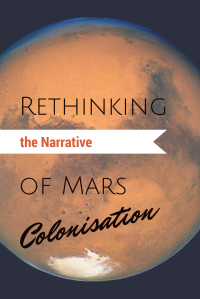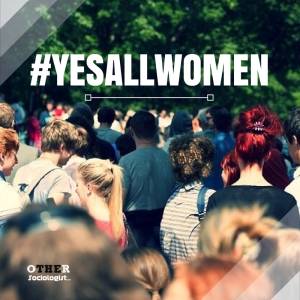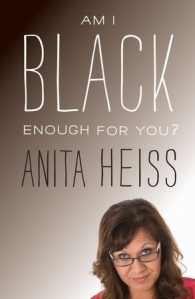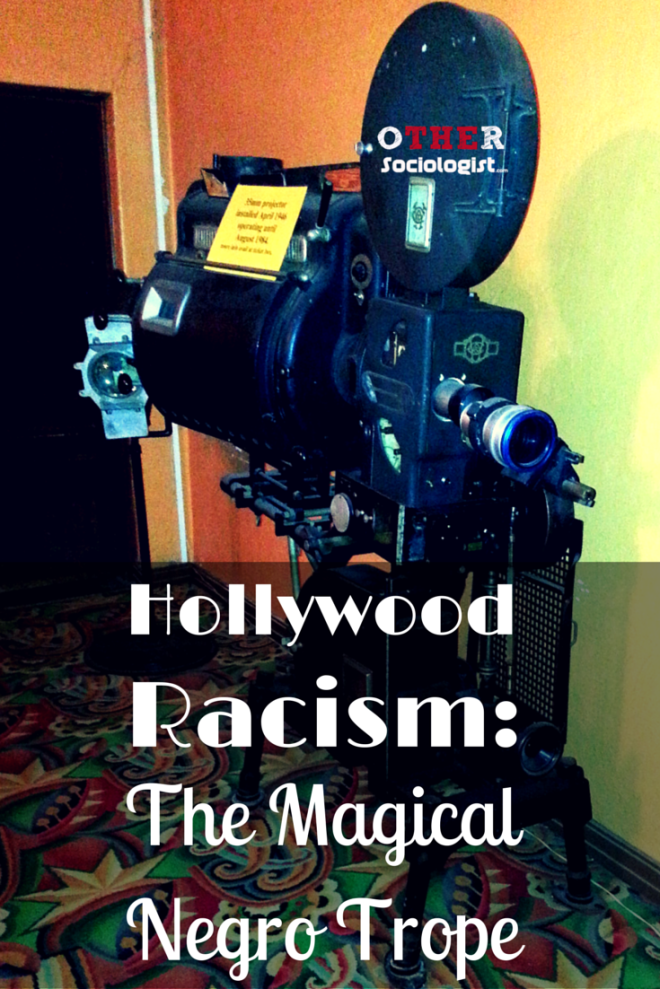‘The term “white privilege” is misleading. A privilege is special treatment that goes beyond a right. It’s not so much that being White confers privilege but that not being White means being without rights in many cases. Not fearing that the police will kill your child for no reason isn’t a privilege. It’s a right. But I think that is what “white privilege” is meant to convey, that Whites don’t have many of the worries nonwhites, especially Blacks, do. I was talking to a white friend of mine earlier today. He has always lived in the New York City area. He couldn’t see how the Michael Brown case had anything to do with him. I guess that would be an example of white privilege.
‘Other examples of white privilege include all of the ways that whites are unlikely to end up in prison for some of the same things blacks do, not having to worry about skin-color bias, not having to worry about being pulled over by the police while driving or stopped and frisked while walking in predominantly white neighborhoods, having more family wealth because your parents and other forebears were not subject to Jim Crow and slavery. Probably all of the ways in which whites are better off than blacks in our society are forms of white privilege. In the normal course of events, in the fullness of time, these differences will even out. But the sudden killings of innocent, unarmed youth bring it all to a head.” – George Yancy and Naomi Zack on The New York Times.
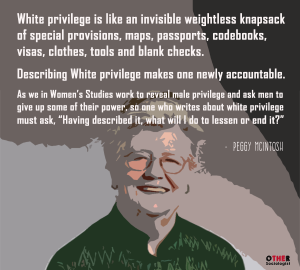
Educator Peggy McInotsh introduced the idea of white privilege, the special benefits, protections and access to power conferred onto White people, which allows them to advance in life without conscious awareness of racial discrimination. She came to this concept as she reflected on her feminist practices. She noticed that even when male colleagues were willing to support women’s efforts to increase gender equity, they were not willing to give up their own status and power. Having tried to include women of colour in her feminist activities with little successful engagement, she came to see how she, as a White woman, had also been reticent to give up her own benefits to make feminism truly inclusive of racial minorities. She notes that educated White people like herself are raised to notice the “bad” aspects of racism, but not the benefits that make her life easier.
She came to realise that Whiteness was like an invisible knapsack she carried around with her, which protects her from noticing the advantages of race. Noticing her racial privileges, she understood the myth of meritocracy, for in the bag of Whiteness, she finds the key to open many doors that women of colour cannot access. Her skin colour was “an asset” that helped her secure a better education; it made it easy to take for granted that she belonged to the broader culture that facilitated her success, despite the gender inequalities she fought.
I have come to see white privilege as an invisible package of unearned assets that I can count on cashing in each day, but about which I was “meant” to remain oblivious… Whites are taught to think of their lives as morally neutral, normative, and average, and also ideal, so that when we work to benefit others, this is seen as work which will allow “them” to be more like “us.”
McIntosh began to recognise that “privilege confers dominance.” She came to see that her feminism was oppressive, even though she wasn’t conscious of the benefits of her race; but this is the point: by not being aware of race, she was contributing to inequity. She had failed to notice how the benefits she enjoys are part of a system that disadvantages people of colour. Just as patriarchy positions men as the universal norm, requiring women to adjust their behaviour and expectations to the needs and interests of men, McIntosh recognises how Whiteness pushes her to view the world through a racial lens. She’s encouraged to leave undisturbed the norm that Others should be more like White people, instead of challenging the system.
Read more on White privilege and related concepts on my resource, Sociology of Race.

